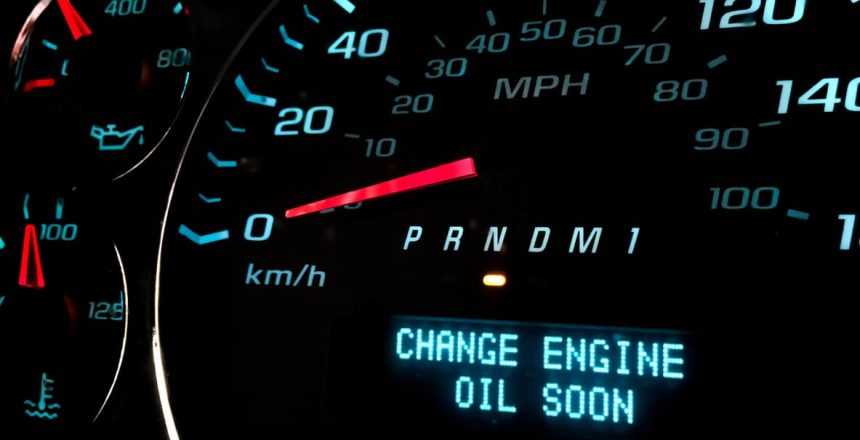You might not need to change your oil every 3,000 miles anymore, but regularly scheduled oil changes are still a major maintenance and money saver.
Key Takeaways:
- Oil changes are essential for maintenance
- The 3000-mile rule shouldn’t be followed without question
- Oil changes avoid accidents and extra expense during car shipping
- The health and safety of vehicles and owners can depend on regular oil changing
Oil changes are an essential part of being a proactive car owner. The old mantra of doing so once every 3,000 miles has been drummed into drivers for decades. Nevertheless, many still forget or avoid this form of maintenance. This can be a good thing in some ways: The vehicles of today are light years ahead of past models. This makes the “3,000 miles” advice less applicable than it was.
There is no denying an oil change is vital but understanding that there’s no one-size-fits-all schedule in getting it right avoids being too early or too late with the lubrication. This guide will cover contributing factors to the proper timeframe for your car and the negative outcomes oil changes avoid.
Factors to consider before changing your oil
Scientific American reported a study recommending that drivers who travel around 10 miles a trip should aim for a twice-yearly oil change, as should those who frequently start their engines on cold oil. Such short-distance drivers will probably need to change oils long before the outdated 3000-mile mark. Upwards of 20 miles a day drivers should consult their vehicle’s manual for the best oil change frequency.
The owner’s manual is a good place to start forming an oil change strategy if your car is new. Youth and age affect cars like they do humans, so younger vehicles will go longer without the need for an oil change. On the other hand, older models will need more attention and likely more oil swaps as the miles and years mount up. Where you live can also impact the ideal time for an oil change: Extremes of hot or cold or areas with a lot of dirt or gravel roads are likely to require more frequent changes.
Synthetic Oils.
The type of oil used is also a change rate factor. Synthetic oils last longer than standard ones and need to be changed less often. Alternatively, high-mileage oils can help older vehicles avoid this maintenance for longer. Using either of these will further influence the “right” time to change your vehicle’s oil.
How oil changes relate to car shipping
Successful car transport means checking important boxes before the vehicle is shipped. Changing the oil before departure is another good idea. Your car will have to be driven to varying degrees during the auto shipping process due to onboarding, off-boarding, and whether you choose to drive the vehicle to and from a carrier’s terminal.
The small expense of a pre-transport oil change can protect you from greater financial liability. This maintenance can help reveal any leaks your vehicle may have and get them addressed before it starts its journey. Many miles of your car dripping oil all over the other cars in transit, as well as the carrier truck itself, will land you with cleanup expenses much higher than the cost of an oil change.
The benefits of a regular oil change
An infusion of fresh oil keeps engines running while extending their life. Well-scheduled changes can do a lot more than that by keeping you, your vehicle, and your bottom line healthy in the following ways:
-
Prevent engine seizure: Your engine will get vocal when it’s time for an oil change because lubrication levels between its parts will drop. This results in louder engine functions that can manifest as rumbling, rattling, and screeching as metal grinds against metal. Oil changes guarantee smooth running and a healthier, quieter engine that won’t fuse itself together or tear itself apart.
-
Avoid strong scents: Oil levels can also drop because the lubricant is escaping. Engine leaks can be detected by smelling oil or exhaust when inside the vehicle. Ask a mechanic to check for leaks and refill any lost oil to avoid these unpleasant and dangerous fumes.
-
Temperature control: Oil can be an engine coolant as well as a lubricant in some models. Engine heat gets transferred into the oil. This in turn goes through a cooler before returning to the engine to regulate its temperature. The repeated hot cycle exposes the oil to thermal breakdown. This decreases its viscosity and reduces its cooling and lubricating potential over time. Regular oil changes are necessary, so the oil can maintain enough integrity to do its job.
-
Financial savings: The maintenance savings alone are enough to change the oil regularly. A new engine can cost between $4,000 to $7,000, not to mention the labor costs and piecemeal expenses of an engine on its way to failure. Regular oil changes deliver further savings in terms of improved gas mileage leading to lower costs when filling up. How often and how far you drive decides how significant these savings will be.
-
Cleaner oil: Running an engine is a dirty business. Sediment, grit, and other liquid and particulate matter build up in oil over time. A regular change gets rid of this grimy stuff that can become a thick sludge that proves highly abrasive to engine parts or doesn’t move enough to sufficiently lubricate. The reaction between oil chemicals, heat, and oxygen can also create acids that lead to engine corrosion.
The return on investment of regularly scheduled oil changes is huge compared to the minimal outlay of time, cost, and effort. This maintenance can also expose other potentially costly issues before they cause serious trouble. Keep on top of it, and your car shipping experience will go much more smoothly.
Your whole vehicle is in good hands with Mercury Auto Transport
The Mercury Auto Transport knowledge base is full of handy advice on every aspect of car transport. We are a full-service auto shipping broker specializing in connecting reliable carriers with customers all across the country. You can contact our team today to find out more about making your next car shipping experience safer and more cost-effective.






